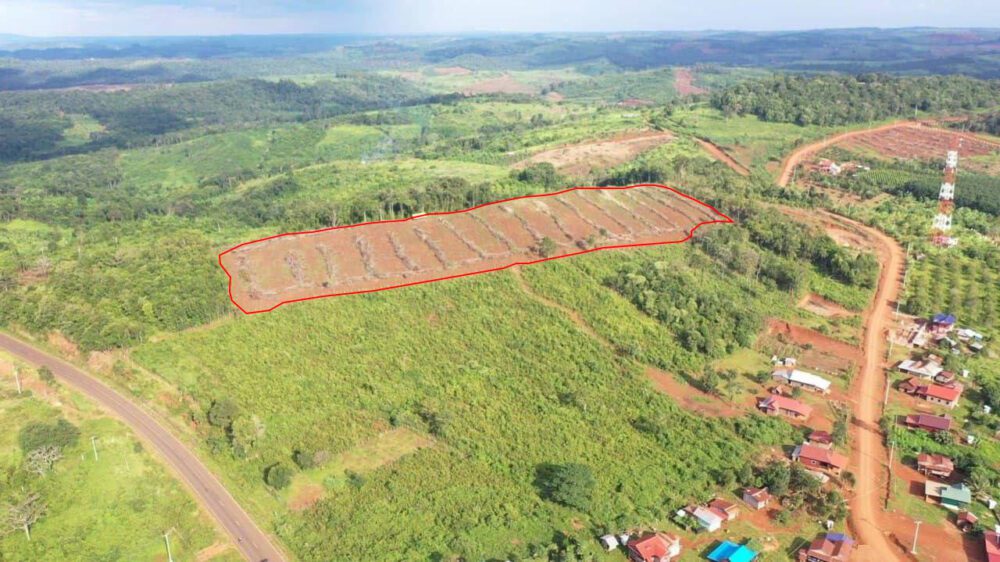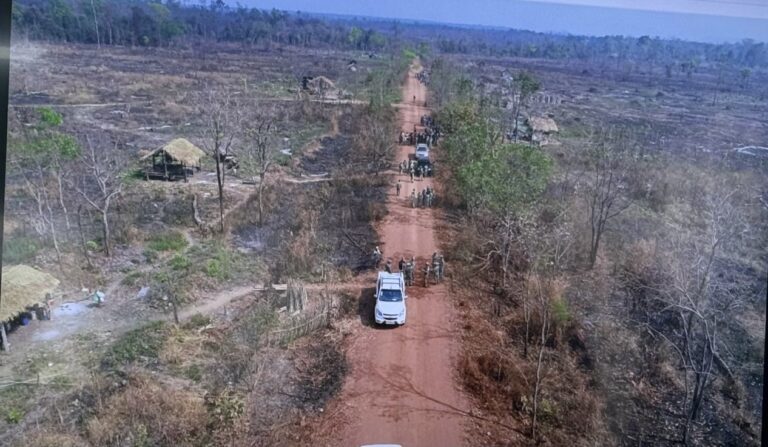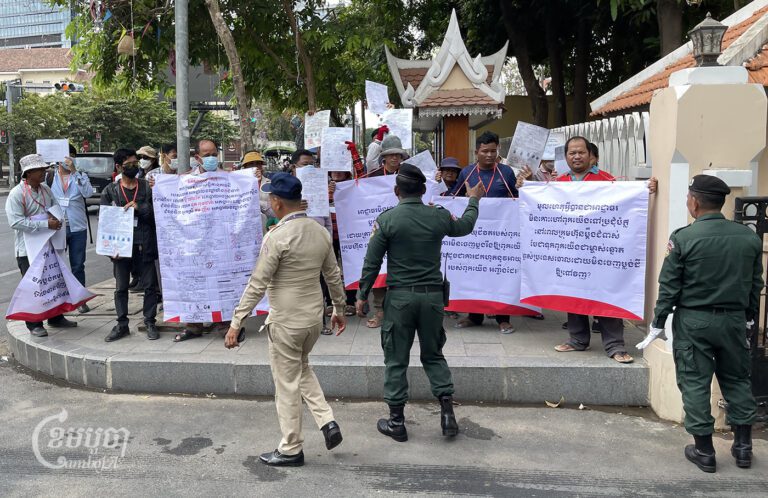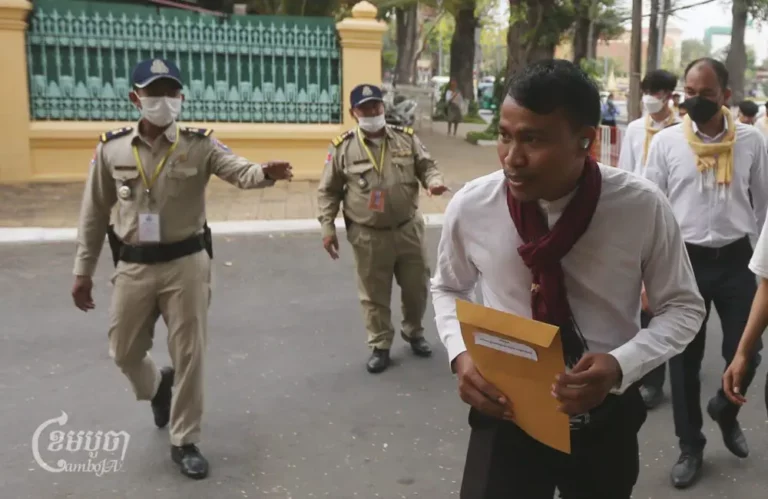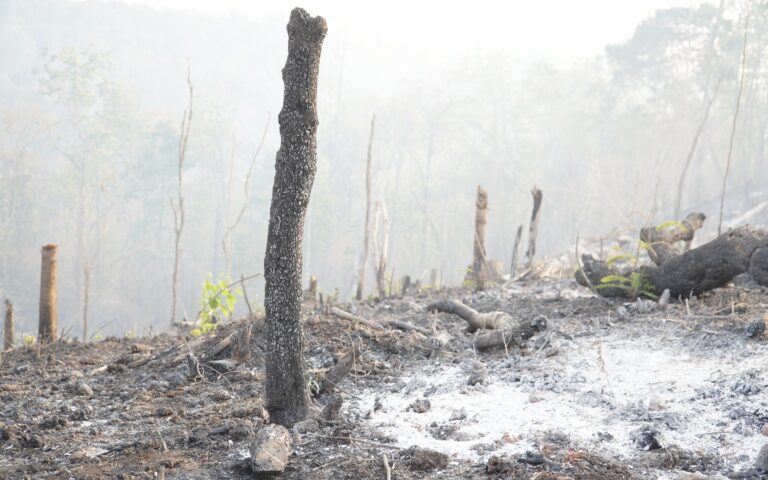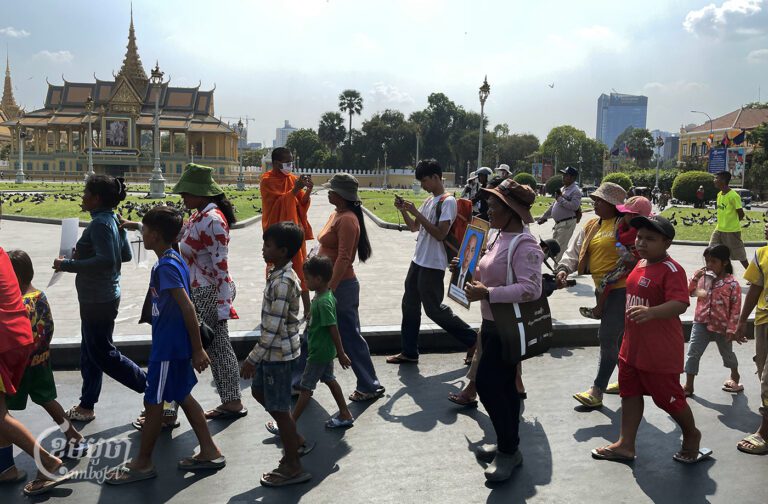Radang is a sacred mountain located within the Punong indigenous community land in Pou Lung village in Senmonorom district’s Romnea commune in Mondulkiri province. The villagers have always celebrated the mountain by making offerings to the spirits, an activity that has long prevailed.
However, the Radang Mountain land, covering an area of 4.76 hectares, is now part of a four year-long land dispute after some villagers allegedly sold the mountain land to two outsiders, identified as Phin Sophareak and Seng Yien.
Roeurn Heng, 39, who represents 85 Punong indigenous families in Pou Lung village, is fighting to regain Radang mountain.
She told CamboJA that the land sale occurred after several villagers and local authorities allegedly forged the land title and sold it to the individuals.
Kroeuk Try and Proeum Khvet were among seven families allegedly involved in the sale of the mountain land, she added.
“These two people and several elders in the village represented the land sale. They were the ones who built the spirit houses and led the young to make offerings of the spirit. But why did they [sell it]?”
Heng said the land sellers claimed that the mountain was farming land with huts on the site.
“But we do not know why they dared to sign to sell valuable land that is a place of faith and is sacred,” she added.
The impact on the mountain and water source
According to Khvan Tai, another community representative, the disputed site is not only sacred but it is also a water source, locally known as O’Chbar. Most Mondulkiri residents are aware that O’Chbar’s source of water comes from Phnom Radang (Radang Mountain).
Tai said Phnom Radang and O’Chbar are very important to the villagers, thus any occupation of the mountain would affect their water source.
“Most of Pou Lung villagers depend on the water source from Phnom Radang if there is insufficient water,” Heng shared.
The loss of the mountain is akin to losing their faith, beliefs, and indigenous identity. When indigenous communities lose their identity, it would be a loss to the Cambodian national heritage. The next generation might not know what their identity is, she added.
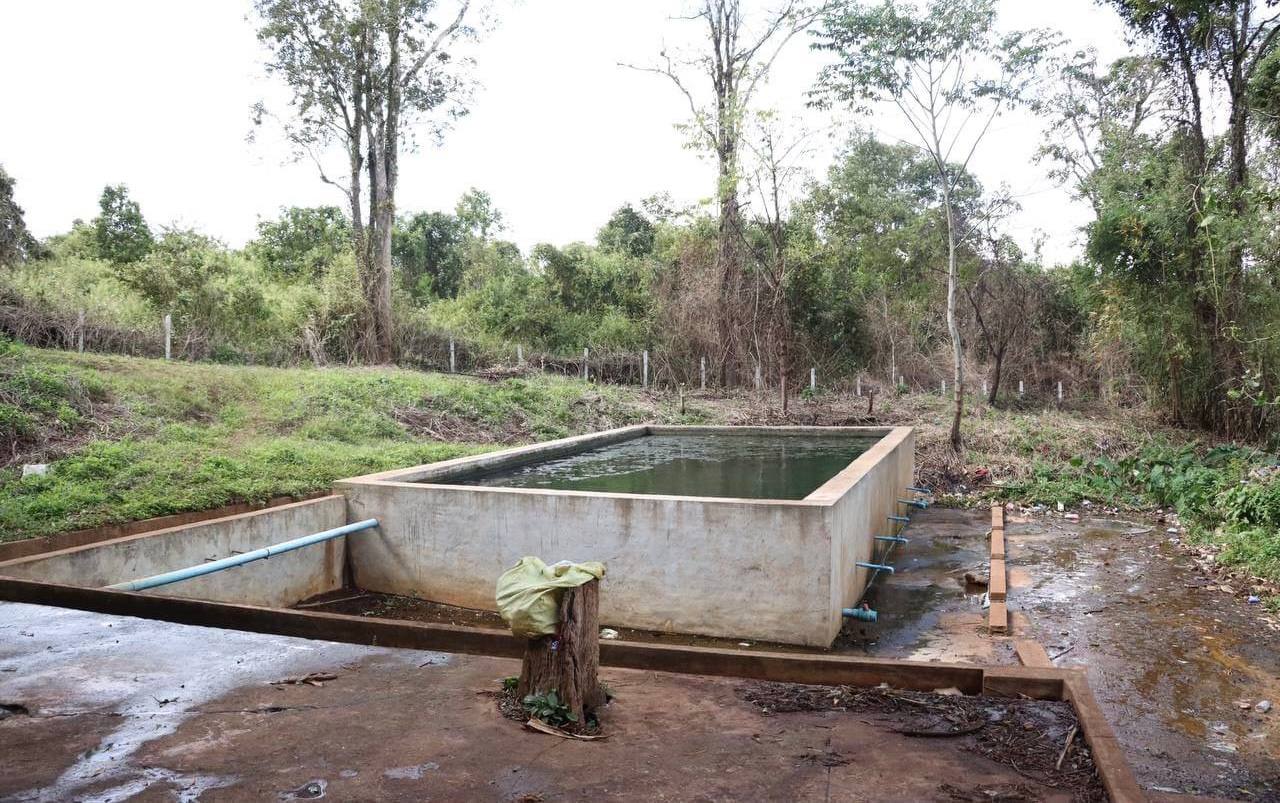
A complicated process
After Kroeuk Try and Proeum Khvet sold the land, they asked their representatives to offer some money to the villagers. In 2019, more than 140 families out of 266 families accepted the money.
“The duo asked people to put their thumbprint before offering 800,000 riels [approximately $200] per family,” Heng added.
Unfortunately, the villagers did not know that the mountain land had been sold. “Some villagers even asked the village chief where the money came from but he told them that he did not know.”
A month later, when the villagers found out that Phnom Radang was being sold, they decided to return the money, Heng said.
However, some of the villagers were warned that they would have to return double the sum and not just the $200 they received as payment for the land. “So, the community decided not to return the money as they did not have enough.”
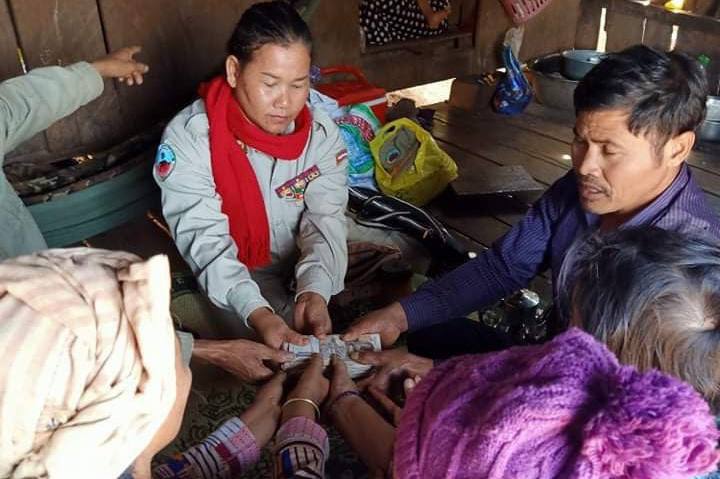
Another 21 villagers returned the money to one of the seller’s representatives, Seng Sopheap, who claimed that she knew many prominent people, although the community did not know that Sopheap was allegedly a fraud.
“Some decided not to return the money after they were threatened to pay double while some returned the money but were still cheated [by Sopheap].”
Tai, 53, who is on trial with Heng at the provincial court, said his wife also received money but she returned it to Sopheap after learning that the money was from the sale of the mountain.
However, Kroeuk Try, the land sale representative, told CamboJA that the community had agreed to sell the mountain land covering 3.7 hectares a few years ago. Proceeds from the sale were equally shared between 141 families.
“There wasn’t much requirement for the sale procedure, just an agreement letter with thumbprints from the commune and village chief,” Try said.
The reason behind the sale was that people begrudged outsiders who encroached the mountain land, thus consenting to a deal to sell it rather than allow someone to take over without any benefit to the community.
He said it was either the commune or village chief who worked on the documents after mutual agreement.
Only several people joined the protest, Try mentioned, alleging that “one person” incited the people to protest. Some of the protesters already took the money.
“Like always, when people are envious, they tend to find a reason to protest. Plainly speaking, mountain land in Mondulkiri has been extensively sold with indemnity,” he said.
“That is why people fear that this mountain would be infiltrated by outsiders without gaining any benefit from them. People wanted to sell it and share the benefits equally.”
Yech Vichyiny, the lawyer for the buyers Phin Sophareak and Seng Yien, declined to comment when contacted via telephone.
‘Two said yes’
Phi Ngouk, Romnea commune chief, said the dispute is being heard at the provincial court after it could not be settled at the commune level.
“It has failed to resolve the deadlock [between the community and the buyers]. People protested to regain the mountain, which is their sacred place, but in fact it was already sold and the buyers have refused to return it,” Ngouk said.
Regarding the sale, the commune worked with the community and the buyers, where they noticed that over 100 families had allegedly put their thumbprint on an agreement to sell the mountain land. However, realizing that they had been duped, the community was not happy and organized a protest to preserve the mountain as their sacred place.
“They [the community] had already divided the money among 170 families in the community. I saw that they received $200 for each family,” Ngouk said. When authorities asked whether they agreed to sell, two representatives said “yes”. During the sale, several authorities including the commune and land department officials participated in checking the location.
Tai later clarified that the thumbprints were not collected from the villagers for the sale of the mountain in 2019, instead it was for the acceptance of 800,000 riels per family.
Fear of losing again
The first phase of the land clearing, covering an area of more than three hectares, was done in 2020.
“There is only a small part of the forest left. It exists because we protested,” Heng said, adding that the community also protested against the land clearing at the time but the other party did not stop as they wanted the hard title. “They even threatened to arrest the villagers if they protested.”
On November 20, 2023, the community representatives received a phone call, allegedly warning them not to protest anymore because the mountain land would be completely cleared in the “next two to three days”.
Any villager who went to the site would be arrested as the authorities would be there, she recalled.
She felt that the buyer party seemed to possess more power than the community because they had the support of the authorities, causing the villagers to lose faith in the latter. The community realized that the authorities were not there to help them although they were afraid and dared not to protest after that.
“Threats and reports of arrests by the authorities shocked the community who lived in fear. They felt discouraged and treated unjustly,” she said. “Indigenous people are vulnerable because we do not have much knowledge. So, when there is a threat, we become scared.”
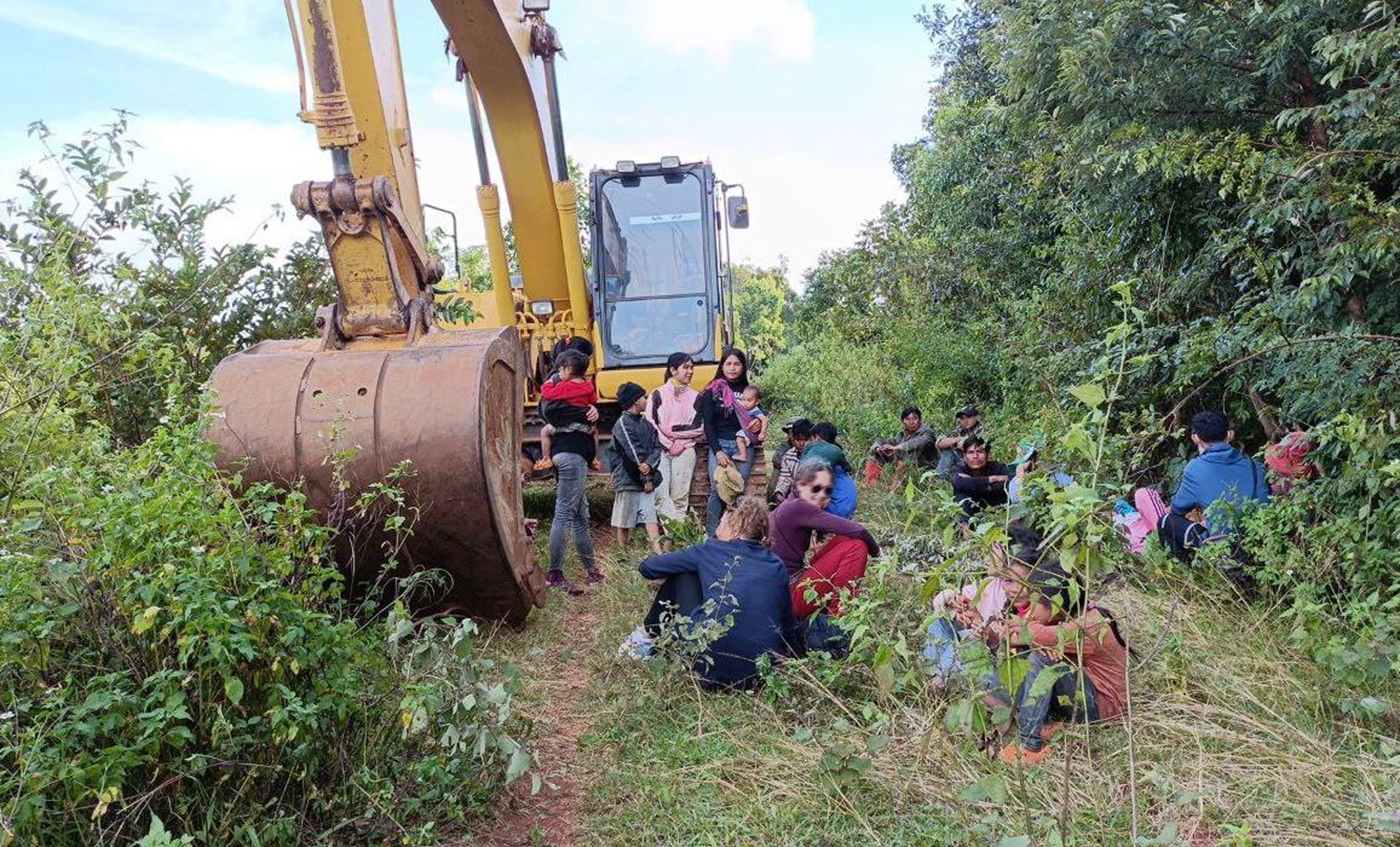
A bulldozer was brought into the disputed land on November 22, 2023, as attempts were made to clear the site for the second time. Villagers protested again amid the presence of provincial police and lawyers, who were there with the buyer party. The authorities told the villagers that the mountain possessed land titles and owners.
“[But] this is a spiritual land. It does not belong to anyone. If they own a land title, how did they [come to] own it?” Heng said.
She added that there was a small dispute between the community and the buyer party at the time, followed by a compromise. While the buyers told the community that they would conduct a meeting to resolve the problem, the latter also told the other side to stop clearing the land.
As a result, the buyer party removed the bulldozer on November 23, 2023.
Addressing a long-drawn dispute
To date, the community has filed a complaint against the local official from the village with the provincial hall, and several ministries including the Ministry of Interior, Land Management, Urban Planning and Construction, Environment, and Culture, and other relevant bodies.
Heng said the national authorities urged the provincial authority to help resolve it. In 2022, the provincial authority solved the problem by dividing the land equally into two parts for the buyers and the community. The community members were not satisfied with this resolution.
“How can we accept this when the whole mountain is a sacred place? It is not right to develop a spiritual place, as if it was a resort.
“Phnom Radang means there are spirits in the mountain. Like our house, it must have a roof, windows, walls, and stairs, and if the house does not have a roof, what is it called?” Heng said.
The intervention sought by the community from the relevant authorities has prolonged for a long time, she lamented.
“It has taken four years. We do not know how much longer [before] this [dispute] is solved?” she said, noting that the situation remains the same, and those who intend to own the land might clear it again if the trees regrow.
Although the documents were prepared by the authorities, whenever there is a problem, the latter blames the community as if they were at fault.
Was there collusion?
Bi Vanny, Adhoc Mondulkiri Coordinator, told CamboJA that the mountain belongs to the state, so if the authorities want to resolve this matter, they can do so because no one can sell state property. In addition, the government should take into account the tradition and customs of indigenous people.
Article 259 of Land Law 2001 states that any infringement against public property shall be fined between five million riel and fifty million riel or face a jail term of one to five years, or both.
The perpetrator must also vacate the land and has no entitlement to indemnity for work or improvements done on it.
Authorities should have explained the law to the community and buyers rather than act on one party’s information, Vanny added.
“The normal buying procedure needs to go up to the provincial level, but I do not know what the authorities have done. In this case, if the court decides in favor of the buyer, what would the court base [their decision] on when the mountain belongs to the state?” Vanny said.
Reiterating that there is no law to sell state land, Vanny said even Sar Kheng (former Interior Minister) has previously mentioned that he has no authority to take control of state land because it violates the law. Only the government has the authority to grant state land as an economic land concession.
“Authorities need to observe this case. If they [authorities] colluded in the sale of state land, did they comply with the law?” Vanny asked.
Trying to find a resolution
Neang Vannak, Mondulkiri provincial spokesperson, told CamboJA that the mountain was “legitimately sold to an outsider” by several people in the community. The current problem is due to discontent by another group in their community, meaning that one group sold the land, and the other wants it back.
“I don’t have comprehensive knowledge about this case, but in the past, the Ministry of Interior delegated provincial officials to check on it. A team was sent to observe once or twice, however, there has not been a resolution yet.”
Ordinarily, when there is a land sale, the procedure of the land title transfer must go through the authority at the village or commune level. There is often a relationship between the authority at a lower level and buyers, but provincial authorities would not know what the commune does to comply with the standard procedures.
“It seems like the people are claiming that the mountain is theirs for festive ceremonies. Anyway, there should have been a prohibition on the sale of the mountain land,” Vannak said.
At the moment, the provincial administration is receiving conflicting information and documents, and are in the process of escalating it to higher authorities.
“Like I said, we are trying to find a resolution. It is difficult since there are people who want the land back and ones who have agreed to sell, and we are trying to find evidence relating to the dispute.”
While he stressed that the law prohibits the sale of state land, he suspects that there might have been a person who allegedly disguised themselves as a representative of the land, luring people into agreeing to sell. “In the past, we admit that there has been [some] collusion or violation [of the law] to take this land under control,” he said.
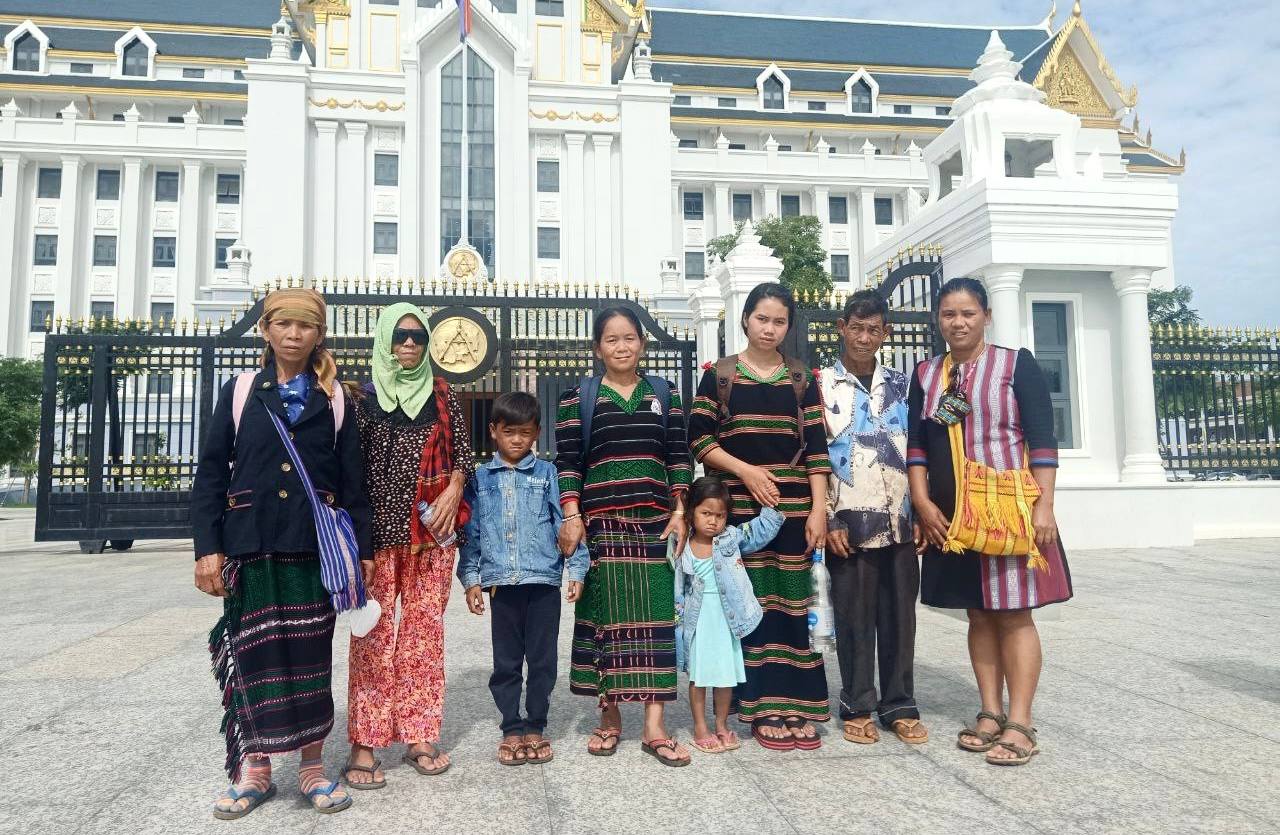
‘It’s a place of faith’
Radang Mountain is a place where Punong people have practiced their faith for a long time while preserving the biodiversity in the area and protecting the state land, said Choeurn Srey Mom, president of the Cambodian Indigenous Women Association.
The sale and purchase of sacred sites belonging to indigenous people is a disrespect to their beliefs, customs, and culture. Those involved in the process are jointly contributing to the annihilation of indigenous people.
“People who buy the land in IP regions need to first find out the history of the land before making any purchase to avoid causing problems and anguish to indigenous people,” Srey Mom said.
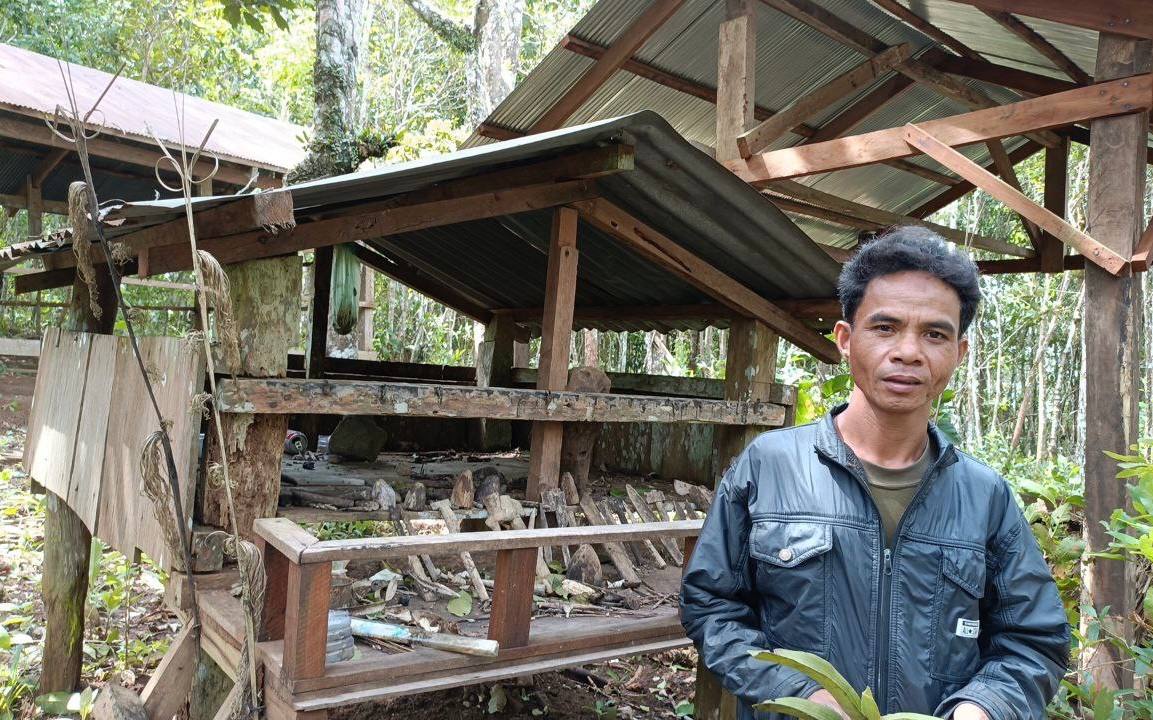
On her Facebook account on November 22, 2023, Yun Mane, executive director of Cambodian Indigenous Peoples Organization, stated that as a Punong native in Mondulkiri province, she called for the provincial authority’s intervention to stop drawing up the land boundary and any attempts to reoccupy the land.
Mane also asked Cambodians, including indigenous people (IP), to work together to protect their faith and sacred sites, which are collective treasures, state properties, and Cambodian heritage, as much as possible. Destruction should be prevented with rigor and obedience, similar to how Muslims and Christians protect their places of worship.
“Why do [the buyers] occupy our long protected and sacred places? How come other religious places are protected? Why do they not dare look down or sell other [religious places] as [they do] indigenous peoples’ places?”
She said IPs have sacred places like other religions. “So, we must work together to prevent [the loss of Radang Mountain]. There is also a law that preserves IP’s culture, tradition, and rights.”
Back in Radang Mountain, Heng said the most appropriate solution is to return the land back to the community and state for everyone’s benefits, not just the indigenous people. The local authorities should also stop threatening the people and respect the law.
“They [local authorities and buyers] would even destroy a sacred mountain because they have the power and money.”
Heng said if she could meet with the buyers in person one day, she would explain to them why her community demands the return of Radang mountain.
“We will tell them that the mountain is a place of faith and it is very important for our descendants.”


